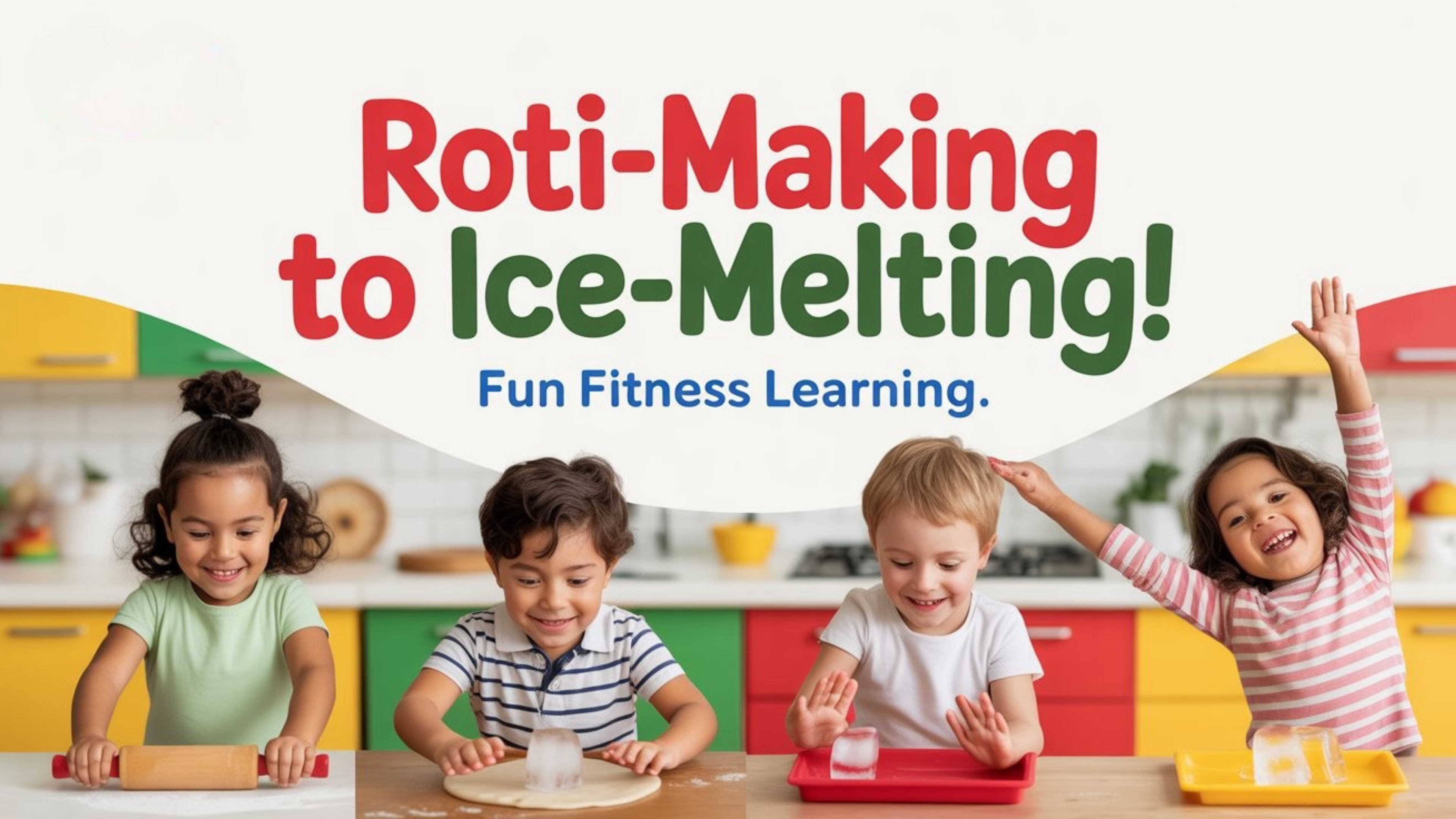Preschool is not just about ABCs and numbers—it’s about learning life skills in fun, engaging ways. One of the most effective teaching methods for young children is combining practical life activities with movement-based play. At Nahata Sports, we’ve taken this idea further by linking everyday tasks like roti-making, carrying water, or ice-melting experiments with fitness activities to create creative kids fitness programs that nurture both body and mind.
These activities may look simple, but they carry powerful lessons for strength, coordination, focus, and independence.
Why Practical Life Activities Matter in Preschool
Practical life activities give children a sense of responsibility and achievement. For preschoolers, such tasks are not “chores”—they are opportunities to explore, learn, and grow. When these are linked with physical activity, children gain:
-
Improved motor skills – rolling, lifting, pouring, squeezing.
-
Better hand-eye coordination – measuring, stirring, shaping.
-
Problem-solving abilities – figuring out cause and effect.
-
Confidence and independence – feeling capable of doing things on their own.
-
Physical fitness – movements like kneading, carrying, or squeezing strengthen muscles.
This is the foundation of creative kids fitness at Nahata Sports.
Examples of Unique Fitness-Linked Learning Activities
1. Roti-Making for Motor Skills
Rolling dough into rotis helps children strengthen their arm and wrist muscles. It also teaches them about shape, size, and texture. To add fitness, kids may squat, stretch, or do balancing games between steps.
2. Ice-Melting Experiments for Curiosity & Endurance
Children are given ice cubes to hold, rub, or move around. While waiting for the ice to melt, they do active exercises like hopping or running in place. This connects scientific learning (temperature, melting) with stamina-building movement.
3. Water Carrying & Pouring Games
Using small buckets, mugs, or bottles, children practice carrying and pouring water into containers. This activity builds strength, balance, and focus while teaching real-life skills.
4. Sweeping & Cleaning Races
Kids are given small brooms or cloths to sweep or wipe areas. This becomes a fun race, improving flexibility and coordination while fostering responsibility.
5. Sorting & Stacking with Fitness Challenges
Preschoolers sort objects like fruits, blocks, or balls into baskets. After each round, they do a short fitness move—like a jump or a stretch—making the task exciting.
6. Gardening as a Fitness Activity
Simple gardening tasks such as digging soil, watering plants, or carrying small pots connect children with nature. The bending, lifting, and walking involved make it a healthy fitness-linked learning activity.
Benefits of Creative Kids Fitness at Nahata Sports
By linking practical life activities for preschool with sports and movement, Nahata Sports ensures that children gain:
-
Stronger muscles & better flexibility
-
Sharper focus & observation skills
-
Creativity and curiosity about everyday life
-
Better teamwork and cooperation
-
Early appreciation for responsibility and effort
Unlike monotonous drills, these creative kids fitness activities feel like play while instilling long-lasting skills.
Why Parents in Pune Prefer This Approach
Parents looking for unique preschool fitness programs in Pune often choose Nahata Sports because:
-
Activities are designed to blend real-life skills with fitness.
-
Coaches make learning playful and engaging.
-
Children feel more responsible, active, and curious.
-
Programs support both academic readiness and physical health.
By transforming simple tasks like roti-making into powerful learning experiences, Nahata Sports helps children grow holistically.
Conclusion
Fitness is not limited to sports—it can be woven into everyday activities. Through practical life activities like roti-making, ice-melting, gardening, and water-carrying, children develop strong bodies, sharp minds, and essential life skills.
At Nahata Sports, we believe in nurturing well-rounded kids with creative fitness programs that go beyond traditional learning. Because sometimes, the simplest tasks teach the biggest lessons.

